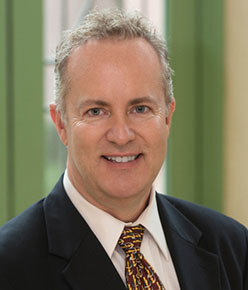News
“Logic will get you from A to B. Imagination will take you everywhere.” –Albert Einstein
 When friends of securities and class action litigator Jonathan Coleman learn that he originally wanted to go to a music conservatory instead of a “regular” college, they are initially surprised. But then, after reflection, not. Coleman, who has long been drawn to all the performing arts, puts it this way: “I’m really a frustrated artist. After years of lessons, I play the piano competently – but no more. I have relative pitch, but I can’t sing. I’m a competent dancer with practice, but not a natural. You get the picture.”
When friends of securities and class action litigator Jonathan Coleman learn that he originally wanted to go to a music conservatory instead of a “regular” college, they are initially surprised. But then, after reflection, not. Coleman, who has long been drawn to all the performing arts, puts it this way: “I’m really a frustrated artist. After years of lessons, I play the piano competently – but no more. I have relative pitch, but I can’t sing. I’m a competent dancer with practice, but not a natural. You get the picture.”
Funding the arts means supporting the artists, and Coleman is glad to do it. He is a Trustee of the Sarasota Opera and also underwrites performances at the Sarasota Ballet; he has attended both for approximately twenty-five years. Both are personally and professionally rewarding: “It’s a great opportunity to meet people. The Opera recently asked me to rewrite its By-Laws, which had not been updated for years. Patrons have been clients in my practice, which primarily consists of protecting investors,” Coleman says. He’s also a regular at the Florida Orchestra, St. Petersburg Opera, Opera Tampa, the Broadway Series at the Tampa Bay Performing Arts Center, and Florida Studio Theatre. All of this activity has unexpected benefits: “There’s nothing that impresses a friend or client more than having a ballet principal stop by just to say hello when you’re out at a sidewalk café,” Coleman notes.
Coleman frequently works on cases with Guy Burns, a nationally-known securities lawyer who majored in visual art in college. Both are convinced that a broad exposure to the arts is an essential part of a well-rounded education, and helpful in business: “We really need people who can use all parts of their brains,” Coleman observes. “Someone who can play an instrument or has been in a band, who can paint, or who understands choreography, is someone who understands the search for excellence, can work on a team, or find a creative approach to simplify something complicated.”
He comes by these interests honestly: “My mother was very social, and was always taking us (Coleman has two brothers) to plays, concerts, museums, musicals, and – football games. The latter didn’t stick as much as the former.” Introduced to music “back when they still wheeled a piano from classroom to classroom,” Coleman showed aptitude. He played first chair alto saxophone in a dance band, woodwinds in a symphonic group, and earned a full music scholarship to a boarding school in the Northeast. “My college tour included Julliard and the Boston Conservatory, but I ended up at the University of Richmond, where I majored in French.” Coleman spent a total of several years living in Paris (his father was Irish and he holds dual European Union/U.S. citizenship), which he describes as a “living museum. The architecture, the light, the access to inexpensive culture, even at the ballet and opera. It was life-changing.”
A favorite early anecdote involves a reality dose from one of New York City’s top professional training facilities: “I always found myself interested in, and was lucky enough to surround myself with, creative people. I moved to New York right after college, eking out a sustenance level living at French bank. One friend was a professional ‘food stylist’ who did things like drawing grill marks on meat with shoe polish. A girlfriend was a window display artist at Cartier. And I knew a professional dancer, who directed me to the Finis Jhung studio, which trained dancers for the New York City Ballet, the Joffrey Ballet, American Ballet Theatre, and others.” After about six classes, “and I was working really hard, my instructor took me aside and said: ‘If only you had come here ten years ago… we might have done something with you….’”
“Now, I’m fortunate enough to support the arts I can’t perform myself. I suppose that ultimately, my motives are selfish: if I’m making the world a better place for everybody, it’s also a better place for me.”

